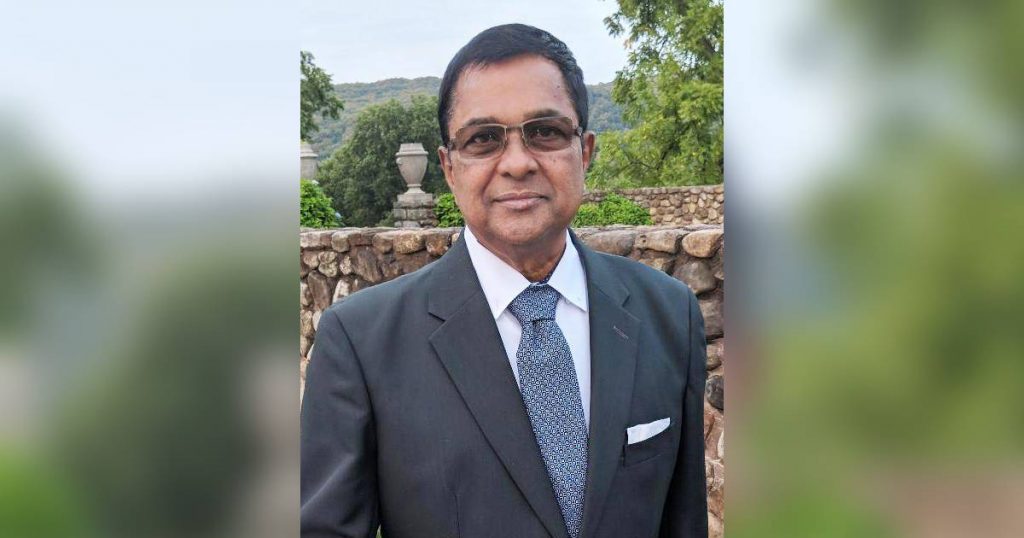Port-of-Spain: Every migration has its history, challenges, travails, and tribulations, with tales of courage, pathos, struggle, separation, success, and reconnection, according to outgoing Indian High Commissioner, Arun Kumar Sahu. He underlined this point by marking the 177th Indian Arrival Day, May 30, 2022, in Trinidad and Tobago.
It also includes the battle between structural accommodation and cultural adaptation. “Nevertheless, people-to-people contacts have been the center of our relationship. Indian music, dance, art, films, festivals, Diwali, yoga, Ramleela, and cricket have played a seminal role in building the people of the two nations together,” said Sahu who will be leaving shortly to return to the Ministry of External Affairs, in New Delhi.
Sahu continued: “Incidentally, this year’s Indian Arrival Day celebration coincides with the celebration of the 75th year of Independence–Azadi Ka Amrit Mahotsav. As you know, independent India has established itself as a robust democratic republic, the biggest in the world, resilient in times of challenges, fulfilling old dreams and aspirations and aspiring for new ones.”
He added: “Today, it is 1.4 billion strong, with an average of 29 years. She is an inalienable force connecting the globe through information technology and artificial intelligence. Her achievements in new sciences such as biotechnology, space sciences, and clean energy contribute immensely to a better future. She played a unique role in providing medical aid and vaccines during the once in a century Coronavirus pandemic.”
President of the National Council of Indian Culture, Dr. Deokienanan Sharma, in his address on Indian Arrival Day at the Divali Nagar stage, spoke that the challenges – personal, political, economic, or social-have not deterred us a people from ensuring that we would not live as our ancestors did, nor suffer the kind of deprivation and hardships that they experienced. “The results of what they have done, we see manifested all around us. Like our ancestors, we too have held on to our cultural and religious practices with firm faith in our representations of God, despite how much our religious practices have been criticized, attacked, and in the process attempted to humiliate us,” he said.
Sharma said that the first Indian movie, Bala Joban, was screened here in 1935. “Bala Joban inspired a resurgence of Indo-Trinidadian culture and contributed significantly to the growth of Indian culture. I humbly offer my silent prayers and obeisance to our ancestors who left their homes and families in India and endured three months of the Paagal Samundars or mad seas to start a new life in a strange and hostile land a few years after the end of the abominable and reprehensible period of slavery”.
Sharma noted that the commemoration of Indian Arrival Day is, therefore, an annual opportunity for our people of Indian origin to celebrate with gratitude the foundations laid by our ancestors and their progeny in the growth of our nation.
Tourism, Culture, and Arts Minister, Randall Mitchell said that this country can do well and emulate the values embodied by the indentured laborers. “Let us continue to follow the example of our East Indian ancestors by working together on the journey to creating a better life for all.”
Member of Parliament for Chaguanas West, Pundit Dinesh Rambally, pointed out that patriotism for this country was “born from the womb of adversity leading out of indentureship. Our identity as Trinidadians and Tobagonians was not coincidental. Let us make no mistake about that. And as more time passed, this immigrant community, beset by many social and economic problems, decided to create a small nucleus in which all their cultural traditions could be kept alive. Against the backdrop of colonial oppression, they chanted mantras, played their instruments, sang bhajans, and kept all the traditions pertaining to childbirth, naming ceremonies, first shaving of the child’s head, marriage and even death.”.
Rambally said that the soil of this country became the new mother that gave them food and gave them the foundation for shelter. It provided the source of economic well-being as these immigrants worked in the sugar industry. He added that the Indian community contributed to every sphere of life.
Faaiq Mohammed, the Mayor of Chaguanas said: “But as a people our identity is greater than all of these. Our identity must be based on our abiding patriotism to our country, our land, our Trinidad and Tobago.”
